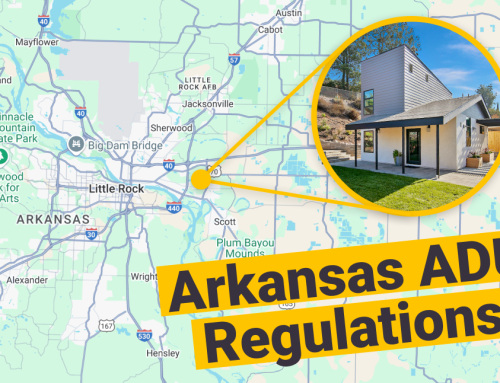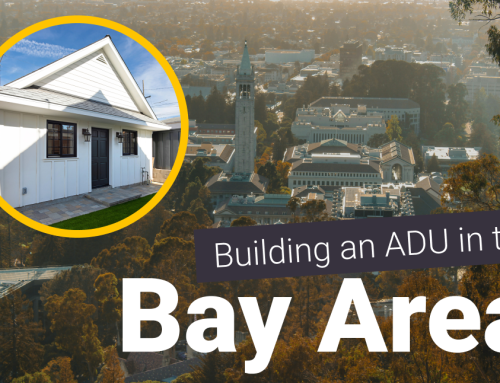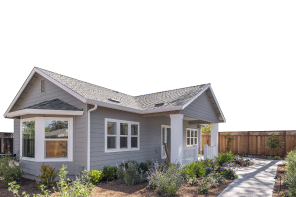Comments courtesy of the Casita Coalition:
The White House hosted a virtual meeting on making it easier to build accessory dwelling units, featuring some of the nation’s leaders on domestic housing and lending policy including Ambassador Susan Rice, White House Domestic Policy Advisor and Erika Poethig, Special Assistant to the President for Housing and Urban Policy. Casita Coalition Founder and Board President Denise Pinkston was invited to participate in a panel on making the ADU process easier for homeowners where she responded to questions from Erika Poethig. Below are her remarks, including insights on the recent transformation of California’s ADU industry, and the power of coalition-building:
A series of pro-ADU bills in California has unleashed a construction boom. What are the benefits of state standards and a more uniform approach like that of California:
The current data makes it clear that because California’s universal State standards– applied across 450 cities and 58 counties – has unleashed what U.C. Berkeley has been calling an “ADU Revolution.” We’re going on 40-50,000 ADUs state-wide, a number that has accelerated during the pandemic. ADU building permits represent 11% of all building permits statewide, 38% of all permits in the City of San Jose, and 20-30% of permits in some SoCal areas.
Because the rules are the same across the state, companies are able to produce more ADU options and roll them out statewide—innovation impossible where every city has separate and hard to achieve standards and the ability to say no. This has generated an estimated $4 billion in private investment with zero-subsidy, hundreds of millions of dollars in venture capital-funded ADU start-ups, creating thousands of new jobs. We have a massive industry now that includes hundreds of companies that are working to lower costs and timelines, improve design, and attract homeowners who want to build ADUs.
Let’s put it this way – over a hundred years ago, Sears Roebuck sold 75,000 standardized, affordable kit homes to markets all over the United States because it was clear that Americans needed more efficient and affordable housing. They were able to do that because rules allowed them to – quickly and cost-effectively, across the US. When more States have ADU standards like California’s, the same results will happen again: more companies across the US will innovate fast and low-cost ways to build ADUs and other small homes in all neighborhoods. You cannot get to this level of efficiency and lower cost with rules that change in every city.
Creating these changes takes coalition building. What are some key lessons you’ve learned from that process?
To build an effective coalition, you need to cast a wide net and bring together a wide variety of supporters from different industries and across different political lines. When we were working on the initial statewide legislation, we were able to bring in all kinds of supporters – labor, companies who needed places for their employees to live, Chambers of Commerce, business associations, environmentalists like NRDC, senior advocates like AARP, cities, planners, and affordable housing builders. Our ADU coalition included people who often disagreed, but all could support more affordable, sustainable, equitable homes across our State.
To get all these people on the same page, we used a simple message that appealed to universal values: local control begins at home, not at City Hall. Nobody gets to decide how many children you have, how many cars you own, or who you love– these are private decisions families make to take care of each other. So why should your neighbors get a say on whether grandma lives in the garage with her own bathroom? Homeowners should get to decide who lives where in their “castle”, not neighbors or City Hall. To get back to homeowner local control, we needed the State to create uniform standards supported by large and diverse coalition.
What’s one piece of advice for elected officials, planning officials, or other champions in other cities?
Don’t be afraid to go big, because it is possible to create change on a big scale with enough supporters and enough momentum. When we first started to advocate for ADUs, people thought we were crazy for wanting Statewide change. But we were able to unify so many people with a simple message: adding an ADU to every backyard could help solve our housing crisis. The explosion in ADU interest, expansion of builders, lowering of costs could only happen at a State-wide level. When you look at the way the Statewide changes have impacted our state, it’s safe to say that ADUs have made a big difference.
About Denise Pinkston:
Denise Pinkston is a partner at TMG Partners and has over 30 years of experience in real estate and development including acquisitions, asset and construction management, marketing, leasing, planning/entitlements, transit and green building, planning management, housing policy, and public affairs. As a technical advisor on State Bills, she played a pivotal role in California’s adoption of Statewide ADU legislation. She is the Founder and Board President of the Casita Coalition.
About Casita Coalition:
Casita Coalition is California’s statewide, multi-sector organization that brings together all key players to remove policy barriers, making a big impact through small homes. Working through our Board, Advisory Committee, and Working Groups, we draw on the diversity of expertise and experience of our members to make it easier to build small homes in all neighborhoods across California. Visit www.casitacoalition.org to learn more.







